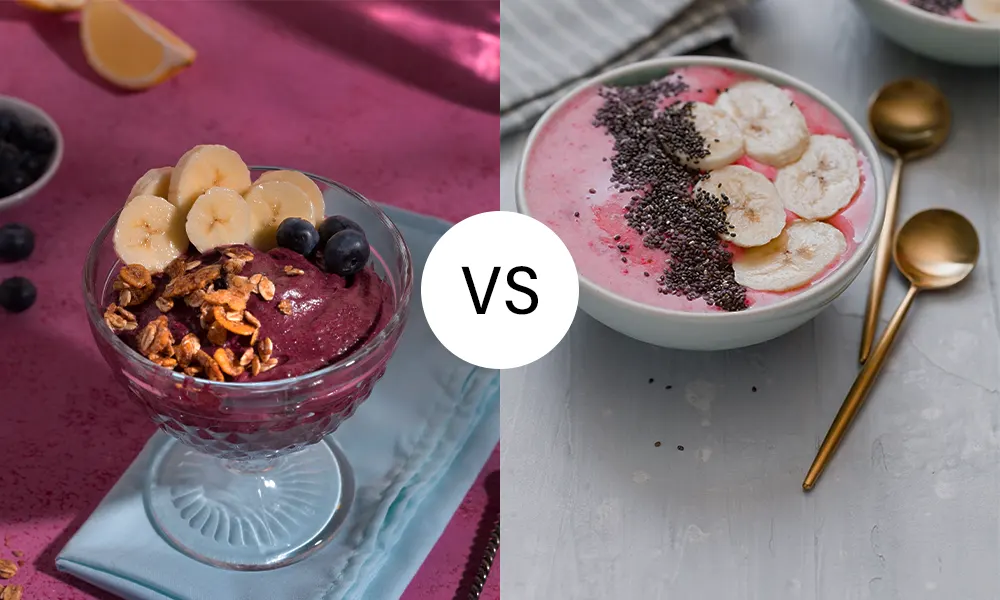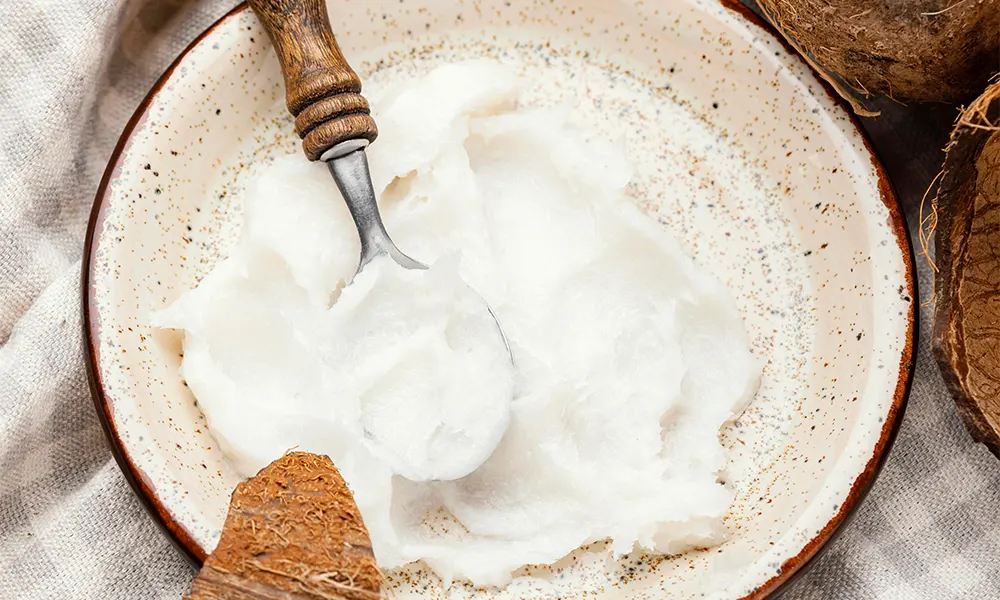So, you’re craving a creamy, tangy yoghurt, but the thought of another bout of bloating and discomfort sends shivers down your spine. The question burning in your mind is: does yoghurt have lactose? It’s a fair question, and one that affects millions grappling with lactose intolerance. Let’s get to the bottom of this creamy dilemma, shall we?
Lactose intolerance can make dairy consumption a tricky issue, and yoghurt, being a common dairy product, often gets caught in the middle. While some people can enjoy yoghurt without any issues, others might find themselves dealing with uncomfortable symptoms after a serving. Understanding whether yoghurt has lactose, and how much, can help you make the right choices for your gut health and overall digestion.
Does Yoghurt Have Lactose?
The short answer? It depends. While yoghurt is made from milk, the lactose content varies dramatically depending on the type of yoghurt and the production process. Traditional yoghurt production involves bacteria that ferment the lactose (milk sugar). This fermentation process breaks down much but not necessarily all of the lactose into simpler sugars like lactic acid and galactose. These are generally easier for people with lactose intolerance to digest.
However, this doesn’t mean all yoghurts are created equal when it comes to lactose. Many commercially produced yoghurts are further processed, sometimes with added sugars, thickeners, and even extra milk solids, which can boost the lactose content. So, even though the fermentation process starts breaking down lactose, does yoghurt have lactose? The answer depends entirely on the brand, the type, and the ingredients.
Different Types, Different Lactose Levels
Live and Active Culture Yoghurt
Yoghurts that contain live and active cultures are generally lower in lactose due to the extended fermentation process. The live cultures continue to break down lactose, even after the yoghurt has been made. This makes live culture yoghurts more tolerable for those with mild lactose intolerance. However, it’s still important to check the label for specifics on lactose content.
Greek Yoghurt
Greek yoghurt, often touted as a healthier option, is strained to remove whey, which contains lactose. This straining process reduces the overall lactose content, making it a better option for those with lactose sensitivity. However, does yoghurt have lactose in Greek varieties? It can, although typically at lower levels than other types of yoghurt. Always check the label for net carbs and any added sugars.
Flavoured Yoghurts
Many flavoured yoghurts contain added sugars, which can mask the sourness of the yoghurt but also increase the overall quantity of sugars in the yogurt. If you’re sensitive to lactose, this is worth being aware of, as the added sugar may exacerbate digestive discomfort. This is a key factor to consider when addressing whether yoghurt have lactose, especially in flavoured versions.
Yoghurt Drinks
Yoghurt drinks tend to have a higher water content and therefore may have a slightly higher lactose content than traditional, thicker yoghurts. This is because the lactose has less solid matter in the mixture to attach to and ferment with, leading to a potentially higher concentration of lactose in liquid form.
Understanding Lactose Intolerance
Lactose intolerance isn’t an allergy; it’s a digestive issue. It arises from a deficiency in lactase, an enzyme produced in the small intestine that breaks down lactose. Without sufficient lactase, lactose passes undigested into the large intestine, where bacteria ferment it, causing unpleasant symptoms like bloating, gas, cramps, and diarrhoea. The severity of symptoms varies greatly between individuals.
Some people are born with a lactase deficiency, while others develop it later in life. There’s no one-size-fits-all answer when considering whether yoghurt have lactose or how it might affect different individuals. The degree to which your system is impacted will determine your experience. It’s all a case-by-case situation, and a person’s ability to digest lactose can vary greatly.
Deciphering Yoghurt Labels: What to Look For
Reading yoghurt labels carefully is crucial, especially if you’re lactose intolerant. Look for terms like “lactose-free” or “low-lactose” for clearly identified options. While “reduced lactose” can still contain some lactose, so be mindful. Pay attention to the ingredient list as well; the higher the placement of the milk solids, the greater the lactose likely to be present.
Furthermore, consider the serving size listed. The stated amount of lactose per serving might seem low, but it can add up if you consume multiple servings. Does yoghurt have lactose? Yes, but the amount and its impact vary.
Alternatives to Traditional Yoghurt
If you have a severe lactose intolerance, you might want to explore lactose-free yoghurt alternatives. Many brands now offer yoghurts made with milk alternatives such as almond milk, soy milk, coconut milk, or oat milk. These options provide a delicious, creamy texture while being entirely lactose-free. These alternatives eliminate the question of whether yoghurt have lactose completely.
Remember to check labels, though! Even “dairy-free” yoghurts may contain traces of lactose or other milk proteins due to cross-contamination during production. Some products might also contain other potentially problematic ingredients. So, you should be just as diligent checking the ingredients as you would when investigating if yoghurt has lactose.
Managing Lactose Intolerance: Tips and Tricks
Besides choosing lactose-free yoghurt, there are several ways to manage lactose intolerance:
- Start with small portions: Gradually introduce yoghurt into your diet to see how your body reacts. It’s a good idea to start slowly and observe your body’s reactions to avoid overloading your digestive system.
- Pair yoghurt with lactase enzyme supplements: These supplements can help your body break down lactose more effectively. You can add these to your chosen yoghurt and consume normally.
- Choose yoghurt with live and active cultures: As mentioned earlier, the fermentation process can reduce lactose levels significantly. These cultures can help further digest lactose, making the yoghurt easier on your digestive system.
- Consider fermented dairy products: Some other fermented dairy products like kefir and koumiss may be better tolerated than yoghurt due to their higher levels of live cultures.
Summing Up
So, does yoghurt have lactose? The answer is nuanced, depending on the type and brand. For those with lactose intolerance, paying attention to labels, starting with small portions, and considering alternatives are key to enjoying this popular food without digestive distress. By making informed choices, you can savour the creamy goodness of yoghurt while keeping your gut happy. Armed with this knowledge, you can confidently navigate the world of yoghurt and dairy, choosing the options that best suit your dietary needs and preferences.
If you want to learn more about managing lactose intolerance or need help finding the right products for your needs, contact us at Yo Hayo. We’re here to help you make informed, healthy choices for a better lifestyle.
FAQs
-
Does all yoghurt contain lactose?
Not all yoghurt contains the same amount of lactose. Traditional yoghurts contain varying amounts, depending on factors like fermentation time and type of milk used. Some yoghurts, like Greek or live culture yoghurt, may have lower lactose levels because of the fermentation process. However, if you’re highly sensitive to lactose, always check the label, as many flavoured or commercially processed yoghurts may contain higher lactose levels.
-
Is Greek yoghurt lactose-free?
Greek yoghurt is generally lower in lactose than regular yoghurt due to the straining process, which removes some of the lactose. However, it’s not entirely lactose-free. For those with lactose intolerance, it may still be tolerable in small amounts, but it’s important to check the label for any added ingredients that might affect your digestive system. Opting for lactose-free Greek yoghurt is also a good choice.
-
How can I reduce the lactose content in my yoghurt?
To reduce lactose intake, choose yoghurts made with live active cultures or Greek yoghurt, as these often have lower lactose levels. The longer the fermentation process, the more lactose is broken down. Alternatively, you can use lactase enzyme supplements to help break down lactose in yoghurt, making it easier for those with lactose intolerance to digest.
-
Are there lactose-free yoghurt alternatives available?
Yes! There are several lactose-free yoghurt alternatives, including those made with almond, coconut, soy, or oat milk. These non-dairy yoghurts are naturally lactose-free and provide a similar creamy texture and taste. Always check the labels to ensure they are entirely free from dairy and don’t contain other ingredients that may cause digestive issues.
-
Can I eat yoghurt if I have lactose intolerance?
If you have lactose intolerance, eating yoghurt is still possible but requires some care. Start with small servings of yoghurt that have lower lactose content, like Greek yoghurt or those with live active cultures. Over time, you may build up tolerance to small amounts of lactose. Alternatively, choose lactose-free yoghurts to avoid digestive discomfort.





